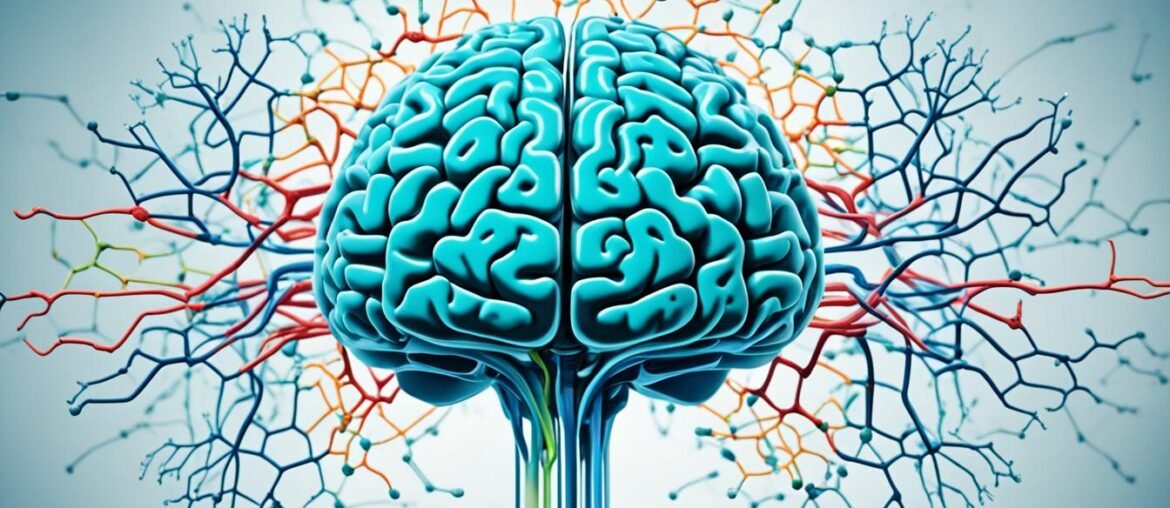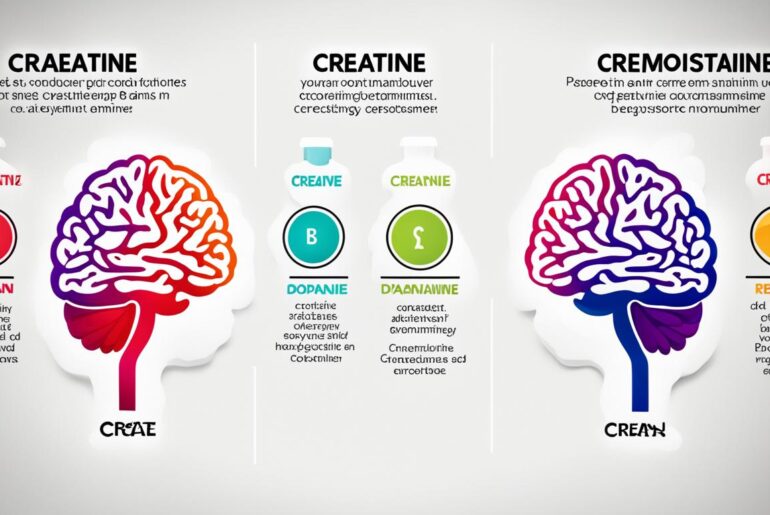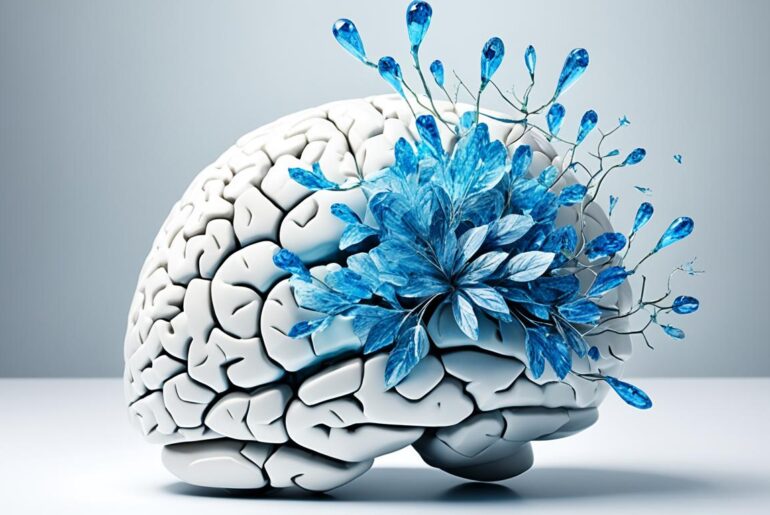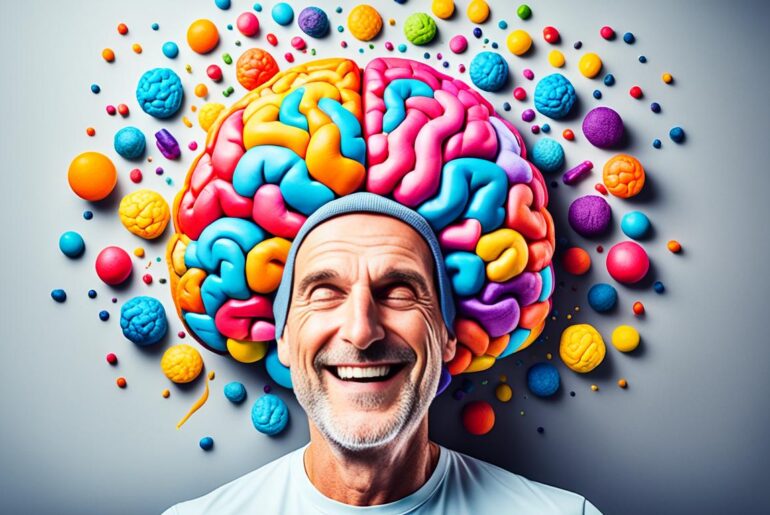Did you know that your brain is an energy-consuming titan, guzzling up about 20% of your total body’s energy, despite constituting only 2% of your body weight? As a professional journalist deeply invested in health and nutrition, I find the continuous quest for cognitive enhancement fascinating. The long-term effects of creatine on the brain have recently come into the spotlight, piquing my interest as well as that of the scientific community. Creatine, a natural compound usually associated with muscle growth, has intriguing implications for creatine and long-term brain health. Our brains require a significant energy supply to maintain cognitive functions, and creatine’s role in boosting brain health is a breakthrough waiting to be fully understood.
Renowned for its efficacy in supporting physical performance, creatine is now being scrutinized for its potential cognitive benefits. As an amino acid found in meat and fish and synthesized in our bodies, creatine serves as more than just a muscle enhancer; it’s potentially a brain booster. With growing research into the creatine effects on brain health, it’s clear that this isn’t just another health fad; there are actual scientific discussions underway about how creatine might support cognitive functions and protect against neurodegeneration over time. Let’s dive into the science and decode the potential long-term cognitive advantages that creatine supplementation could unlock.
Key Takeaways
- Understanding creatine’s role in supporting the massive energy demand of the brain is critical for assessing its impact on cognitive health.
- Regular creatine intake might contribute to improved cognitive functions, particularly in memory and reasoning – an area of particular interest for aging populations.
- The responses to creatine supplementation can be quite varied, underscoring the importance of personalized approaches in dietary supplementation for brain health.
- As the potential neuroprotective properties of creatine are further explored, the prospect of using creatine as a therapeutic agent gains momentum.
- Much is yet to be learned about the long-term effects of creatine on the brain, highlighting the necessity of ongoing research in this field.
Introduction to Creatine and Its Role in Cognitive Health
Exploring the relationship between creatine and cognitive enhancement is becoming increasingly compelling in the field of neuroscience. As we delve into the specifics, we discover that the presence of creatine in the brain isn’t merely incidental—its function is critical to our cognitive well-being. Sustained energy during mental exertion, this natural compound facilitates, underscores our continuous quest for understanding the potential cognitive benefits of creatine.
The Biochemical Basis of Creatine in the Brain
At the biochemical level, creatine stands out as a pivotal actor in cerebral energetics. My investigations reveal that it is not only produced within the brain’s neurons but also plays a significant role as an energy buffer, ensuring that high-energy demands, as often seen during intense cognitive processing, are met with immediacy. This rapid response to energy needs is a cornerstone of creatine’s value and affirms the importance of creatine supplementation and brain function.
Initial Findings on Creatine and Cognitive Enhancement
The academic community, in its pursuit of knowledge, has unearthed intriguing findings related to creatine and cognitive enhancement. It has been noted that individuals with a lower intake of dietary creatine, such as vegetarians, tend to exhibit a more pronounced cognitive boost when supplemented with creatine, especially in memory-related tasks. This observation suggests a dietary modulation in creatine’s efficacy and warrants a closer look at the factors underlying the cognitive benefits of creatine.
| Cognitive Task | Response in Vegetarians | Response in Meat-Eaters |
|---|---|---|
| Memory Recall | Enhanced | Baseline |
| Processing Speed | Improved | Improved |
| Executive Function | No Significant Change | No Significant Change |
As a professional delving deep into these compelling correlations, I am driven to communicate the current state of knowledge while advocating for continued exploration. The path to fully unraveling the secrets of creatine and cognitive enhancement is rich with potential, beckoning further scholarly inquiry and clinical trials. Bearing witness to its unfolding influence over our understanding of brain health is, without a doubt, a remarkable era for both scientists and enthusiasts alike.
Understanding Creatine’s Impact on Brain Energy Metabolism
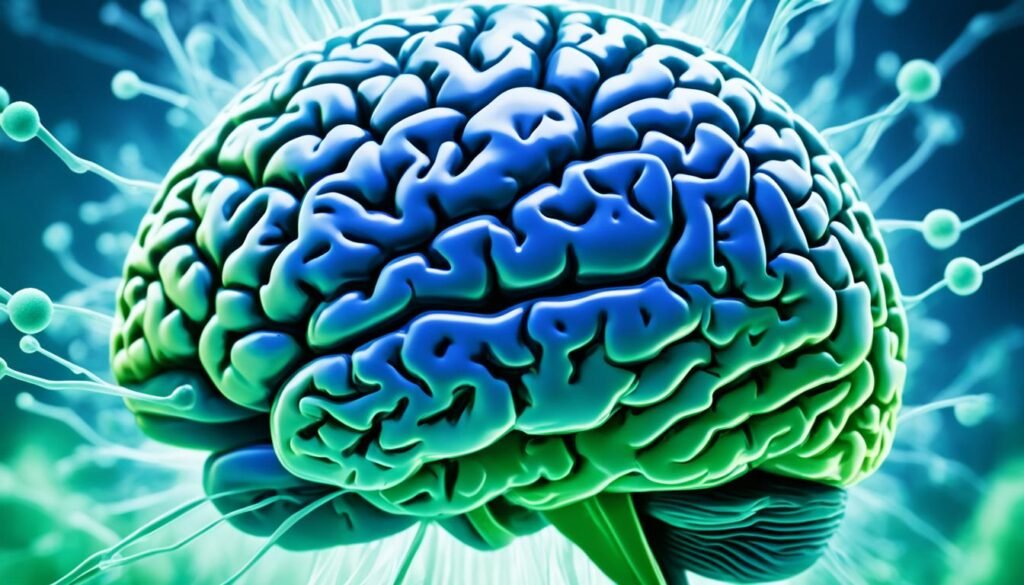
When considering the pivotal role of creatine in maintaining cognitive functions, it’s crucial to delve into how this compound sustains the brain’s energetic demands. As I explore the intricacies of this relationship, I’m compelled by the evidence demonstrating creatine’s robust potential in shielding our neural resources against the inevitable wear of time.
Energy Demand in Neuronal Activity and Creatine’s Function
The human brain, despite being only 2% of body weight, voraciously consumes roughly 20% of our total energy. The reason for such a high metabolic need lies in the ceaseless activity of our neuronal circuits. These energy demands are where creatine enters the picture. It readily donates phosphate groups to ADP to regenerate ATP – the currency of cellular energy – ensuring that brain performance does not falter even under strenuous conditions. This function is particularly beneficial in countering brain aging, allowing our neurons to function optimally for a longer duration.
Pathways of Creatine Transport to Brain Tissue
How creatine traverses into the brain is equally fascinating. The SLC6A8 transporter is a gatekeeper at the blood-brain barrier, shuttling creatine into cerebral tissues. This process is critical because the brain cannot solely rely on its internal synthesis; it requires a substantial amount from supplementation to elevate its creatine stores. This boost in brain energy reservoirs translates into a neuroprotective effect, arming our neurons against brain aging and cognitive decline.
In table form, the relationship between creatine and brain health can be further distilled:
| Brain Function | Impact of Creatine | Relevance to Aging |
|---|---|---|
| ATP Synthesis | Increase in phosphate donation to ADP | Supports high energy demands of aging neurons |
| Neuronal Survival | Enhances cellular energetics | Contributes to neuroprotection and longevity |
| Cognition | Facilitates synaptic transmission and plasticity | May improve memory and learning in the aging brain |
To personalize these insights: I find it remarkable that a supplement I can readily incorporate into my diet has the power to amplify my brain performance and perhaps defend against the onslaught of cognitive decline. With research advancing, I remain hopeful about the full spectrum of creatine’s benefits on brain health – not only for myself but for my generation as we navigate the trials of aging.
Assessing the Cognitive Benefits of Creatine Supplementation
In my exploration of the effects of creatine on cognitive performance, I’ve observed compelling evidence suggesting that creatine supplementation can contribute to cognitive enhancement. I’ve come across numerous instances where individuals have experienced noticeable improvements in brain function, particularly in areas such as memory and reasoning. For those keen on leveraging dietary supplements to bolster cognitive faculties, it becomes crucial to discern factual data from anecdotal experiences.
Improved Memory Functions with Creatine
One area of brain function that appears to benefit from creatine supplementation is memory. Anecdotal reports and preliminary studies have led to growing interest in how this supplement may particularly enhance short-term memory capabilities. In my encounters with professionals from various cognitive-demanding fields, there’s an emerging consensus that creatine’s role in augmenting memory functions could usher in new approaches to cognitive enhancement.
Creatine’s Influence on Intelligence and Reasoning
The cognitive benefits of creatine may also extend to facets of intelligence and reasoning. As a journalist focusing on health and cognitive function, I’ve observed a surge of interest in using creatine to boost mental performance related to complex problem-solving and logical tasks. However, the true impact of creatine on these cognitive domains still begs for a rigorous scientific endorsement, and these current inclinations need to be substantiated by concrete research.
| Cognitive Domain | Impact of Creatine | Observed Outcomes |
|---|---|---|
| Short-term Memory | Potentially Positive | Enhanced recall capabilities in demanding tasks. |
| Intelligence | Varies | Some reports of improved reasoning in complex problem-solving. |
| Reasoning | Under Investigation | Indications of enhanced logical processing, pending further research. |
In conclusion, while encounters and discussions with experts in the field suggest promising links between creatine supplementation and enhanced brain function, I am compelled to emphasize the need for continued research. The complexity of brain functions and the individual variation in responses to supplements like creatine underscore the importance of personalized approaches to cognitive enhancement.
Unraveling the Neuroprotective Effects of Creatine
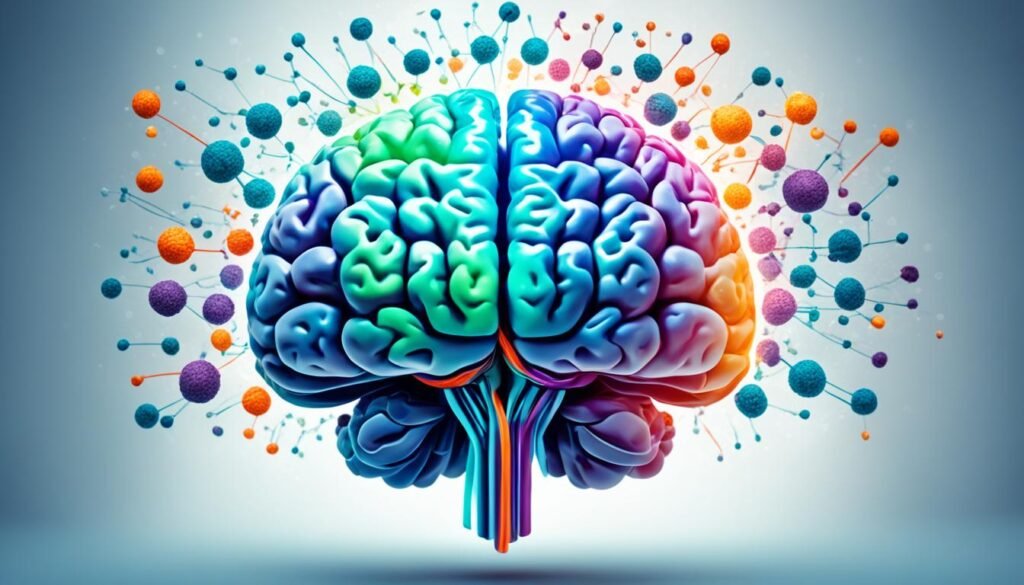
Exploring the realms of brain health, I’ve delved into understanding the neuroprotective effects of creatine. Through rigorous examination of existing studies and diving into the deepest trenches of neurochemistry, an intriguing pattern emerges: creatine isn’t just fuel for muscles—it’s a sentinel for the brain’s intricate energy demands. The ability of creatine to potentially safeguard our neurological fortresses during times of metabolic stress—such as during intense cognitive activity or neurological insult—begins to paint a picture of a compound that is about more than brawn; it is about the resilience and robustness of our most vital organ.
In the context of mental fortitude and neurological disorders, creatine appears to be more than a simple supplement; it takes on the role of a molecular gatekeeper, ensuring our brain cells have the energy to function, even when under siege by disease or decay.
Genetic deficiencies in creatine synthesis pathways have shown us the stark realities of its absence: cognitive impairments, a reminder of the neuroprotective effects of creatine we often take for granted. The profound improvements seen with creatine supplementation in these cases shine a light on its therapeutic potential for various neurological conditions. Furthermore, its preventative capabilities are underscored by studies linking higher endogenous creatine levels to improved performance on certain cognitive tasks—a testament to its role in enhancing brain health. It’s a scenario that resonates deeply with those who understand that mental acuity hinges on not just the strength of our synapses but also on the health of their power sources.
- Creatine and Metabolic Stress – how this compound serves as a crucial energy buffer.
- Cognitive Improvements Linked to Creatine – a closer look at how the brain performs with and without this energy reserve.
- Therapeutic Potential of Creatine – exploring its role in clinical settings for treating neurological diseases.
In my investigation, the concept that consistently emerges is that of resilience. Creatine contributes not only to the immediate access to energy but also instills a form of protection against the wear and tear of time and disease on our cognitive capacities. In essence, the more I learn, the more I perceive creatine not just as a supplementary substance but as a vital ally in the quest to maintain optimal brain function.
Exploring Creatine’s Role in Brain Aging and Plasticity
As we delve into the intricacies of cognitive health, I find the relationship between creatine and brain aging to be of particular intrigue. The question that beckons is how this natural compound may not only support but enhance our brain’s vitality over time. As the years pass, our cognitive functions inherently face challenges. However, the inclusion of creatine supplementation and brain function in our daily regimen might hold the answer to promoting a more resilient cognitive future.
The Potential of Creatine in Retarding Brain Aging
In my exploration of recent scientific literature, I encountered compelling evidence pointing to creatine’s capacity to preserve the energetic balance of the brain. The prospect of using creatine to combat the adverse effects of aging on neural circuits holds a fountain of potential for long-term brain health. It appears that through maintaining a reserve of energy, crucial for synapses and neural activity, creatine could very well slow the relentless march of time on our cognitive processes.
Creatine Supplementation and Neuronal Plasticity
The concept of neuronal plasticity, the remarkable ability of our nervous system to change and adapt, is central to learning and memory formation. Creatine, in this context, emerges as a possible guardian of plasticity. By offering an energy buffer during the synaptic remodeling and strengthening that accompanies learning, creatine supplementation could shepherd our brain through the continuous journey of cognitive development, safeguarding the neural adaptability that enriches our intellect and wisdom.
Long-Term Effects of Creatine on the Brain
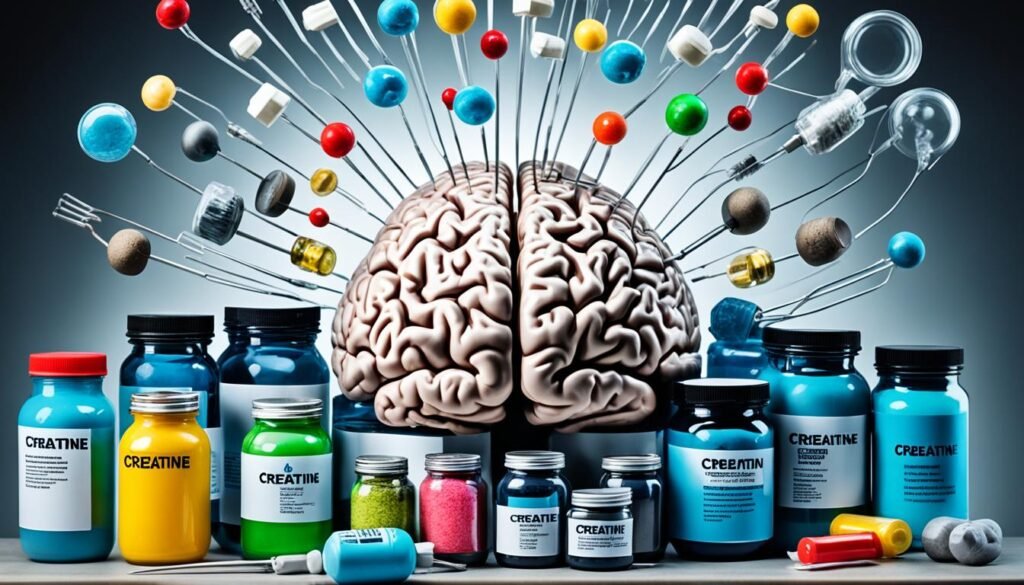
As an advocate for cognitive health and an observer of supplement trends, I’ve taken an in-depth look into creatine effects on brain health, seeking to unearth the far-reaching consequences of its usage. In my exploration, the spotlight often falls on creatine’s short-term benefits which are regularly celebrated within academic circles and fitness communities alike. Nonetheless, a void exists where the long-term effects of creatine on the brain should be illuminated.
In my professional commentary, it’s crucial to ascertain if creatine can uphold its cognitive accolades or perhaps even amplify them over a prolonged period. The scientific fraternity resonates with this curiosity, rallying for extensive studies that will bring clarity to creatine’s enduring influence on our cerebral landscapes. Can continuous creatine supplementation be synonymous with sustained cognitive excellence? This remains a tantalizing query in the realm of nutritional neuroscience.
In the context of ongoing research, questions about creatine and long-term brain health gnaw at the impatient intellect. Will future studies reinforce creatine as a companion for mature intellects or perhaps suggest it as an antidote to mental wear over time? As a curious and involved participant in this discourse, I join the ranks awaiting empirical evidence that could potentiate creatine’s standing as more than a muscle enhancer—it could be an ally for the intellect, safeguarding its vigor against time’s relentless march.
Dissecting the Potential Risks: Creatine and Long-Term Brain Health
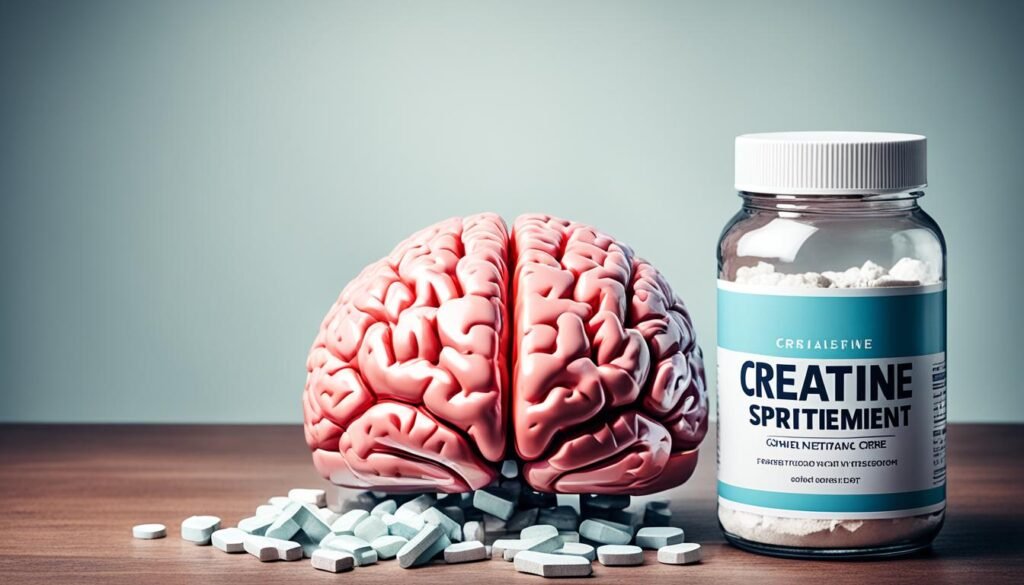
As we dig deeper into the effects of creatine supplementation and its correlation with brain function, it’s imperative to address the potential risks of creatine on the brain alongside its praised role in cognitive enhancement. While many fitness enthusiasts and researchers advocate for the benefits of creatine, drawing a clear line between these benefits and their broader implications on long-term brain health requires a careful approach.
Evaluating Adverse Effects of Creatine on Cognitive Function
The conversation about creatine and cognitive enhancement has predominately been optimistic, thanks in part to favorable short-term findings. Nevertheless, an area that needs further illumination is the long-term impact of sustained creatine use on our cognitive faculties. Are there any long-term repercussions that could potentially outweigh the immediate cognitive benefits?
Current studies do not present a consensus on whether chronic intake of creatine could lead to adverse cognitive outcomes. Concerns have been raised regarding the possibility of the brain’s reduced capacity to synthesize its own creatine following long-term external supplementation, although empirical evidence for such risks remains scant. This highlights the need for a more nuanced understanding of how our brains may adapt to or be altered by prolonged creatine usage.
Considerations of Creatine Usage in Clinical Populations
Turning our focus toward clinical populations, the dialogue shifts from potential cognitive gains to the critical assessment of how creatine supplementation may affect individuals with preexisting cognitive impairments or dementia. The therapeutic use of creatine as a cognitive enhancer is still under exploration, with the primary objective of discerning whether its administration can be considered safe and effective for this particular demographic.
In these sensitive conditions, the potential risks of creatine on the brain take on greater significance. Therefore, ongoing and future research must endeavor to answer these questions with a high degree of precision. The end goal is to ensure that supplementation guidelines are informed by robust evidence, striking a balance between the promise of brain health improvements and vigilance against unintended consequences.
Creatine’s Influence on Brain Performance Under Stress and Deprivation

As a journalist who delves deep into the nuances of health and nutrition, I’ve observed the profound impact that creatine supplementation can have on supporting cognitive functions. Particularly when faced with metabolic challenges such as stress and sleep deprivation, creatine stands out as a beacon of hope for maintaining brain performance and nurturing long-term brain health.
Enhancement of Cognitive Resilience Through Creatine
The high-energy demands of the human brain make it particularly susceptible to stress. In such conditions, creatine acts much like a crisis manager, stepping in to maintain the ATP supply essential for brain energy metabolism. This relationship indicates not only the supplement’s role in bolstering everyday cognitive function but its neuroprotective effects during periods of heightened stress. Studies illustrate that individuals supplementing with creatine can better sustain focus, clarity, and decision-making, even amidst taxing circumstances.
Creatine and Its Effects During Sleep Deprivation
The fast-paced lifestyle common in today’s society often culminates in sleep deprivation, which can take a toll on cognitive acuity. Here, creatine’s influence becomes even more pronounced. Research indicates that creatine supplementation may buffer the brain against the detrimental effects of lack of sleep. By boosting energy reserves and modulating neurotransmitter pathways, creatine can help preserve critical processes essential for brain performance and creatine synergy, translating to real-world resilience against cognitive fatigue.
| Cognitive Function | Performance with Adequate Sleep | Performance with Sleep Deprivation | Performance with Creatine Supplementation |
|---|---|---|---|
| Memory Recall | Optimal | Decreased | Maintained |
| Reaction Time | Swift | Sluggish | Improved |
| Decision Making | Sharp | Impaired | Enhanced |
| Focus & Concentration | Concentrated | Distracted | Concentrated |
Comparative Studies: Vegetarians, Meat-Eaters, and Creatine Response
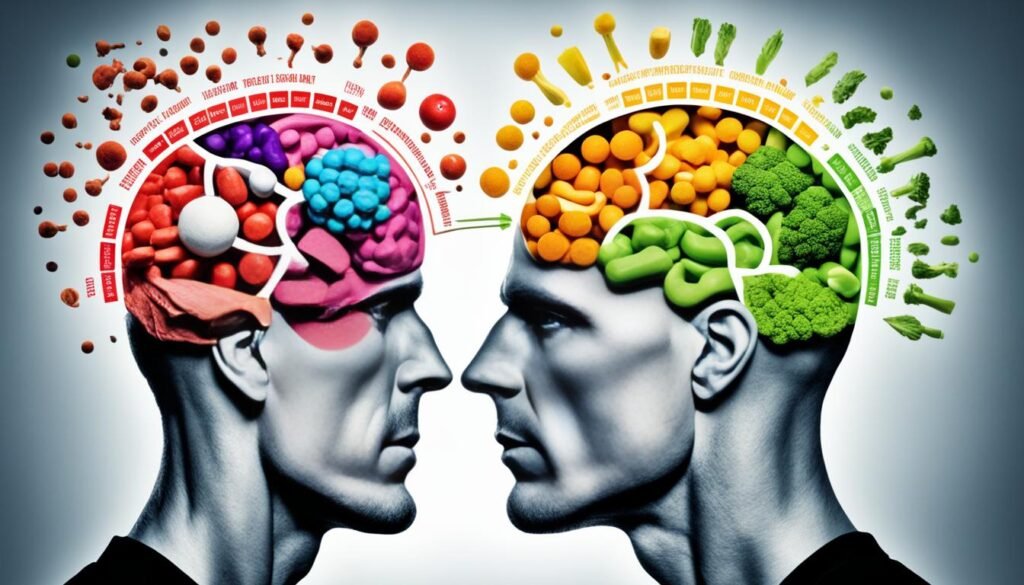
As a professional health enthusiast, I’ve closely monitored how diet influences the efficacy of supplements, and my research has shed light on the cognitive benefits of creatine. Interestingly, dietary habits play a crucial role in one’s response to creatine supplementation. Vegetarians, possibly due to their lower baseline intake of creatine, often exhibit more noticeable enhancements in cognitive tasks after creatine supplementation than meat-eaters.
It’s essential to understand the differential impact of creatine in diet-specific groups. Whether an individual consumes meat or adheres to a vegetarian diet could dictate the level of cognitive enhancement they experience from creatine. While both demographics can reap the cognitive benefits of creatine, the extent of improvement appears to be linked with baseline dietary intake.
Differentiating Cognitive Benefits in Diet-Specific Groups
In the quest for brain health optimization, it is intriguing to note how vegetarians might experience a more pronounced cognitive improvement from creatine supplementation. A probable reason for this might be the typically lower levels of creatine in vegetarian diets as opposed to those of meat-eaters, providing a greater “gap” to be filled by supplementation.
Understanding Creatine’s Varied Impact on Cognition Based on Diet
The phenomenon where vegetarians might derive greater cognitive enhancement from creatine supplements is pivotally informative. It compels us to consider dietary background when evaluating creatine’s effects on brain health. Such findings are not only relevant for dietary advice but also for customizing nootropic interventions for optimal cognitive outcomes.
Conclusion
As we draw conclusions from the evidence presented, it’s clear that the ramifications of creatine supplementation stretch beyond short-term cognitive enhancements. The long-term effects of creatine on the brain include promising prospects for brain health and the potential to counteract the tolls of aging on cognitive function. My assessment reveals a complex depiction of creatine as a supplement with substantial benefits for improving brain performance during periods of stress.
However, it’s important to note that the efficacy of creatine does not elicit a universal response; dietary backgrounds play a crucial role in individual outcomes. Given the intricate interplay between creatine supplementation and brain function, there is an evident need for additional, extensive research. This burgeoning understanding underscores the evolutionary stage of our comprehension in regards to creatine and long-term brain health.
Therefore, while I advocate for the exploration of creatine’s full potential within the realms of cognitive enhancement and neuroprotection, I also underscore the importance of prudence, particularly in potentially vulnerable populations. As we embark on future studies, the goal remains to steadfastly enhance our neurometabolic arsenal while simultaneously safeguarding against unforeseen outcomes.
FAQ
What are the long-term effects of creatine on the brain?
Although the short-term cognitive benefits of creatine are well-documented, the long-term effects of creatine supplementation on brain health are still under investigation. Ongoing research is crucial for understanding how prolonged creatine use may contribute to cognitive enhancement and aging.
Can creatine supplementation improve cognitive functions?
Yes, creatine supplementation has been linked to improvements in short-term memory and intelligence reasoning in healthy individuals. However, the extent and domains of cognitive enhancement can vary, indicating the need for further research to fully understand its effects.
What role does creatine play in brain energy metabolism?
Creatine plays a critical role in supporting the high metabolic demands of brain cells. It helps maintain ATP levels essential for brain activity and enhances energy reserves, which is crucial during periods of intense cognitive processing.
Has creatine been shown to have neuroprotective effects?
Creatine has been hypothesized to have neuroprotective properties by maintaining neuronal energy supply, especially under conditions of metabolic stress. Genetic creatine deficiencies that are associated with mental dysfunctions have also shown positive responses to creatine supplementation.
What potential does creatine have in retarding brain aging?
Creatine may slow the process of brain aging by ensuring energy availability, which supports cognitive functions. It also appears to contribute to neuronal plasticity, which could alleviate the effects of aging on the brain.
Are there potential risks associated with long-term creatine usage for brain health?
Currently, clinical trials have not established significant adverse cognitive effects of long-term creatine use. However, safety and risk assessment in specific populations, such as those with cognitive impairments, is essential and requires further study.
How does creatine affect brain performance under stress and sleep deprivation?
Studies suggest that creatine supplementation may maintain cognitive function and potentially protect against the cognitive deficits associated with sleep deprivation, highlighting its role in cognitive resilience during metabolic stress.
Does diet affect the response to creatine supplementation regarding cognitive benefits?
Yes, dietary habits can influence the response to creatine supplementation, with vegetarians often demonstrating greater improvements in cognitive tasks compared to meat-eaters, likely due to differences in baseline dietary creatine intake.

